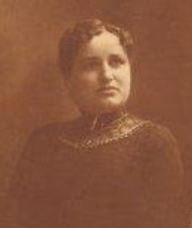Maria Evelina de Sousa facts for kids
Quick facts for kids
Maria Evelina de Sousa
|
|
|---|---|
 |
|
| Born | 1 January 1879 |
| Died | 12 February 1946 (aged 67) Ponta Delgada, Second Portuguese Republic
|
| Nationality | Portuguese |
| Other names | Evelina de Sousa |
| Occupation | teacher, journalist |
| Known for | co-founding the first animal rights organization in the Azores |
| Partner(s) | Alice Moderno |
Maria Evelina de Sousa (born January 1, 1879 – died February 12, 1946) was an important Portuguese teacher and writer. She lived and worked in Portugal in the early 1900s. Evelina was a strong supporter of women's rights. She also helped start the first group in the Azores to protect animals.
Contents
Early Life and Education
Maria Evelina de Sousa, often called Evelina, was born in Ponta Delgada. This city is on São Miguel Island in the Azores, which was part of the Kingdom of Portugal at the time. Her birthday was January 1, 1879.
She went to the District School for Teachers. In 1900, she passed her final exams in seventeen different subjects. This showed she was a very good student.
A Career in Education and Writing
In 1904, Evelina de Sousa started her teaching career at the Santa Clara School. She also began writing for a newspaper called O Campeão Escolar. This newspaper focused on topics about education.
In 1906, Evelina moved in with Maria Emília Borges de Medeiros and Alice Moderno. Alice and Maria Emília had been friends and lived together for many years. Evelina and Alice became close partners and shared their lives. They worked together on many projects.
That same year, Evelina started her own magazine, Revista Pedagógica. She ran and edited this magazine for ten years. It became very important in schools and universities. People in the Azores and across Portugal recognized its value.
Improving Schools in the Azores
Evelina de Sousa worked hard to make education better in the Azores. In 1911, she helped with a school survey. She found that only a quarter of children who should be in school were actually enrolled. Only about 150 students regularly attended the four schools available. She also noted there were not enough trained teachers.
She went to conferences to learn new teaching methods. Evelina even taught other teachers for free. She shared the Legato-Luazes Method, a special way to teach reading and writing. She also supported a new law that stopped religious teaching in primary schools. In 1924, she was honored for her efforts to improve education. This honor came from the First Feminist and Education Congress.
Animal Protection and Women's Rights
In 1908, Evelina created the first "revolving school library" on the island. This was a library where books could be moved between different schools. In the same year, she and her partner, Alice Moderno, started the Micaelense Society for the Protection of Animals. This was a group dedicated to helping animals.
Evelina was also a member of several groups that supported women's rights. These included the Feminist Propaganda Association and the Republican League of Portuguese Women. In August 1912, while visiting Lisbon, Evelina and Alice were honored. The Republican League praised them for being key leaders in fighting for women's rights and education in the Azores.
Later Years and Retirement
Starting in 1915, Evelina de Sousa joined the editorial team of Folha. This was another journal that Alice Moderno had started in 1902. Evelina also wrote for the newspaper Correio dos Açores. She published her poems and opinion pieces there.
She retired from teaching on July 13, 1940. She had taught at the Escola Agostinho Machado Bicudo Correia. Throughout the 1940s, Evelina and Alice were often seen walking their dog in Ponta Delgada. Alice was known for dressing in men's clothes, including a hat, tie, and walking cane. She also smoked cigars.
Death and Legacy
Maria Evelina de Sousa passed away on February 12, 1946. She was buried the next day in the Cemetery of São Joaquim. Alice Moderno died just eight days later, on February 20, 1946.
In 2013, the city of Ponta Delgada decided to add Evelina's name to the crypt. This was the burial place Alice had built for them both. In 2017, the government honored Evelina de Sousa. She received the Azorean Insignia of Recognition for her important contributions.

